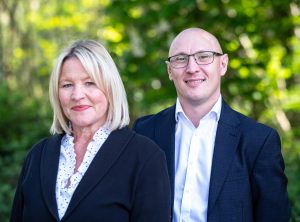Business prudence can restrict reaching growth potential

FAMILY businesses are very different to other private businesses – decisions are not purely geared to profitability and there are issues around maintaining harmony within the family.
Family business transcends a corporate entity’s goals of wealth and profit. It is part of the family and can be run for reasons of philanthropy or status in the community and so the goals are different.
Jonathan Boyers, partner – corporate finance, KPMG Enterprise, says: “Decisions that family businesses might make may not be entirely business related. They are emotionally led and sometimes can be irrational.”
The difference in mindset comes with having something where you feel you are a custodian or guardian of the family wealth.
Boyers adds: “No-one in a family business wants to bet the ranch. Risk taking is quite difficult, particularly for the second and third generations onwards.
“The first generation is the original entrepreneur and often is prepared to take more risks. However, the further you move down the generations, the greater the tendency to be more cash rich and have less debt.”
Read the Driving Private Business supplement here
That level of prudence can mean that when it comes to driving growth, there can be a reluctance to bring in external investment.
But Prof Arif Khurshed, professor of finance at Alliance Manchester Business School, says the widely held view that family businesses largely do not want to give equity is not entirely true.
“I think many family firms are not averse to giving small amounts of equity,” he says.
Private equity is not always seen as suitable for family businesses as they generally take longer term decisions and have longer horizons – so the return may not have to be as immediate.
Prof Khurshed points to a growing appetite for cornerstone and strategic investors – be they organisations or individuals.
For family-owned businesses selling shares to a private investor, such as a high net worth business angel, there is an affinity as these people have themselves been running businesses with a commonality.
“They are patient investors it is a longer term investment. Also, family firm want experience, so a longer term relationship can be beneficial to both parties,” says Prof Khurshed.
 He adds that networks are being created through the British Private Equity and Venture Capital Association (BVCA) to put those companies and people together.
He adds that networks are being created through the British Private Equity and Venture Capital Association (BVCA) to put those companies and people together.
Family Business Place, itself a family business, works to raise the profile of family firms across the UK, holding regular events, such as its northern conference held for the first time last year in Leyburn, and supports them with marketing and branding.
It is in the process of setting up an investor network, recognising the different investment needs a family business may have and partnering them with investors that may themselves have come from a family business background.
Managing director Anita Brightley-Hodge says: “People want to invest for tax reasons and to help another family business. An investor from a family background gets it; you can have easier conversations than with non-family investors – with options to buy back, for example. They understand the long term value of investment.”
Prof Khurshed adds that there has been a push for government to look into investment from pensions and hedge funds into private businesses.
“It has not traditionally been available but these investors are so large, if a small percent was put into private firms rather than just the stock market, it would have a great impact,” he says.
“Enterprise Investment Schemes were shelved at the height of the crisis and businesses are saying that the government should look at that again. It is a financial instrument so legislation would need to be put in place.”








